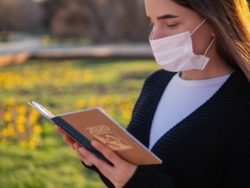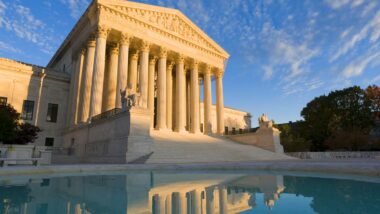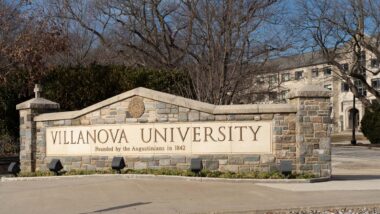
Barry University has been accused of failing to provide tuition refunds to their students, despite campus closures due to the coronavirus.
Like many other universities, Barry University moved their classes to online platforms in March as a result of the global coronavirus pandemic. In addition, the school reportedly closed all housing, dining, and campus services.
However, despite depriving students of the on-campus experience they paid for, Barry University allegedly refuses to provide refunds to students for their tuition and fees.
Plaintiff Marlena Rosado recently filed a class action lawsuit against Barry University, seeking a refund for the tuition and fees that she paid for the spring 2020 semester.
Rosado was reportedly enrolled in the university as an undergraduate student for her first year in college. She allegedly lived on campus before being forced to move back home and claims to have paid for the full cost of on campus housing and a meal plan.
Have you been denied a refund by your college or university? Get legal help by clicking here.
Despite being forced to move home due to the coronavirus outbreak, Rosado and other students were allegedly denied refunds for the cost of room and board.
Rosado also takes issue with the lack of tuition credits. She claims that, after being forced to transition to online classes, she is not getting the full benefits of the tuition she paid for.
The Barry University class action lawsuit argues that students are willing to pay “hundreds of thousands of dollars” for on-campus tuition and the experiences it provides students including “the opportunity to engage directly with their professors, to meet and share experiences with diverse and accomplished individuals from around the world, to join student clubs, to build professional networks, and to experience the campus environment.”
In contrast, online learning is reportedly associated with poorer outcomes in student education. Several studies have allegedly corroborated these claims, finding that failure and withdrawal rates are much higher for online courses.
Additionally, online degrees are reportedly associated with poorer career outcomes. The Chronicle of Higher Education has reportedly determined that online programs are considered “undesirable” by employers.
Rosado notes that online degree programs at schools such as Barry University are associated with significantly decreased fees considering these deficiencies.
“There is no question that classroom learning—and all of the experiences that come with on-campus education—is more valuable to the student than online learning,” the Barry University class action lawsuit argues.
“Online learning offers none of these opportunities—and carries few of the massive expenses associated with live classroom learning.”
The Barry University class action lawsuit claims that, despite these deficiencies, Rosado and other students are being forced to pay the full cost of their tuition for subpar instruction.
Rosado argues that she and other students should be given refunds for at least a portion of their tuition based on the transition to online classes.

The Barry University class action lawsuit argues that students could use the refund money to resolve their outstanding student loan debt or pay other expenses.
“Many students like Ms. Rosado, could use the cash refunds to pay expenses or to pay the interest on their student loans to lessen their already crushing student debt,” the Barry University class action lawsuit argues.
“Barry University is, in effect, forcing its students to give it an interest-free loan using money that they could use for alternative housing, meals, and other essential living expenses.”
Instead of providing refunds, Barry University has allegedly only chosen to provide a $1,060 “COVID-19 Move Out Credit” to student accounts for future expenses. Rosado argues that this credit is nowhere near enough based on the amount she paid for the semester.
Rosado seeks to represent a Class of students or other individuals who paid tuition, fees, on campus housing expenses, and/or meal plan expenses to Barry University for the spring 2020 semester.
On behalf of herself and the proposed Class, Rosado seeks refunds in the form of compensatory damages, restitution, and disgorgement. The Barry University class action lawsuit also seeks interest, court costs, and attorneys’ fees.
Rosado and the proposed Class are represented by Jeff Ostrow, Jonathan M. StreisFeld, and Joshua R. Levine of Kopelowitz Ostrow Ferguson Weiselberg Gilbert; Anna C. Haac of Tycko & Zavareei LLP; and Daniel L. Warshaw of Pearson Simon & Warshaw LLP.
The Barry University Tuition Refund Class Action Lawsuit is Rosado v. Barry University Inc., Case No. 1:20-cv-21813, in the U.S. District Court for the Southern District of Florida.
Join a Free Coronavirus College Refund Class Action Lawsuit Investigation
If your college or university closed because of the coronavirus, but you did not receive a refund for tuition, room and board or other fees, you may be able to join this coronavirus school refund class action lawsuit investigation.
ATTORNEY ADVERTISING
Top Class Actions is a Proud Member of the American Bar Association
LEGAL INFORMATION IS NOT LEGAL ADVICE
Top Class Actions Legal Statement
©2008 – 2026 Top Class Actions® LLC
Various Trademarks held by their respective owners
This website is not intended for viewing or usage by European Union citizens.














